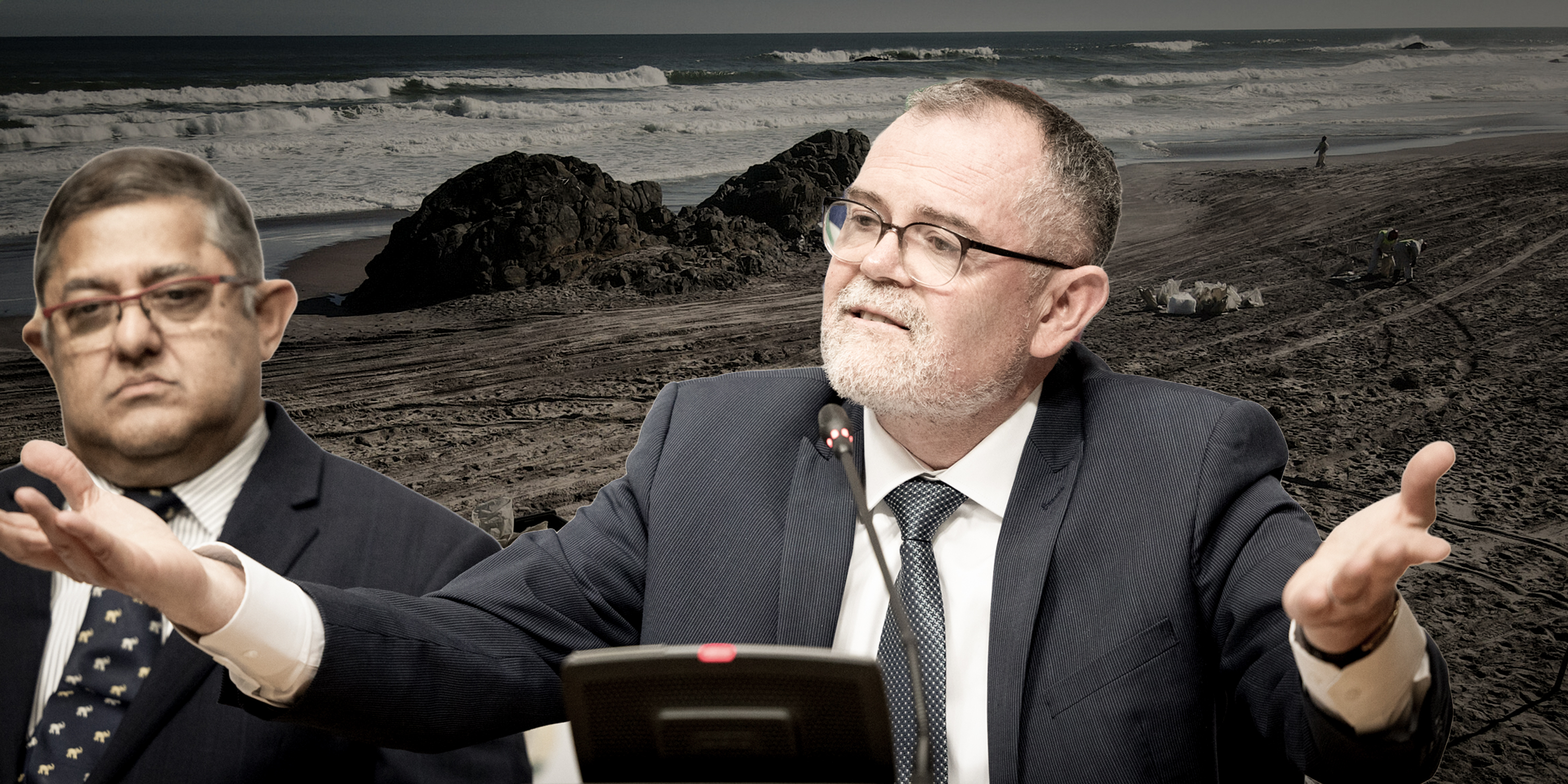When Forestry, Fisheries and the Environment Minister Dion George came into his new portfolio, he was hesitant to make promises and set clear objectives, but marking his and his deputy ministers’ (Bernice Swarts and Narend Singh) – first 100 days in office, he announced the department had initiated a review of its regulatory frameworks in a bid to simplify procedures and reduce unnecessary red tape.
In addition, the department will institute a simplified fishing rights application process and a departmental spending review.
In his media briefing in Parliament on Tuesday, 15 October 2024, George said the last time the department initiated a review of its regulatory frameworks was 12 years ago.
The review would aim to “streamline governance and compliance processes” and make the country’s environmental regulations “more efficient, transparent and effective”.
During his first 100 days, George said they began the process of identifying bottlenecks and areas in need of improvement.
“I am pleased to share that we have made substantial progress in starting to simplify procedures and reducing unnecessary red tape. We have also started to engage with industry leaders, environmental organisations and community representatives to gather feedback on regulatory obstacles,” he said.
In doing this, George claimed they were developing practical solutions that reflected the realities on the ground and ensured that the country’s policies struck the right balance between environmental protection and economic development.
Read more: From finance to forestry and fisheries – South Africa’s new environment minister takes a pragmatic approach
Responding to Daily Maverick on what bureaucratic barriers the department was looking to remove and what specific procedures were being streamlined, George said the regulatory framework was a very complicated environment as the minister was the appeal authority for the environmental applications and mining.
“The intention is not to remove those very important regulations that protect our environment and create the balance that we need to find. Because obviously we want to dig minerals out of the ground, but at the same time, there is an impact on the environment. We don’t want to remove anything that would have a negative consequence. That’s something that we’re very mindful of.”
George said they were conducting a comprehensive review, looking at the regulations and pieces of paper that the department requests, but doesn’t actually need.
Once he has the comprehensive list and it is clear that there won’t be any unintended consequences, he will begin the necessary changes to the regulations to “write them out”.
“That would make processes and businesses faster without doing any harm… I think that’s the crucial issue.
“I want to make it crystal clear that it is not my intention to make it easier or impact in any way on the Environmental Impact Assessment process… It is very important that any time there is development or mining, the environmental impact is looked at very closely and it does not remove any safeguard at all,” he said.
The minister said this review would not weaken anything, but assess how the department currently reviews Environmental Impact Assessments, “bearing in mind that we do have our Climate Change Act also in place”.
Simplify the application for fishing licences
In the minister’s first press briefing in office, Daily Maverick’s Don Pinnock told George that one area the minister could address to drastically improve the department and the lives of small-scale fishers was to simplify the application form for small-scale fishing rights. The complex process had left fishers unable to receive fishing rights for the past 15 years, despite being fishers for generations.
After that first press briefing, George said he immediately went upstairs with the fisheries officials who had been present to look at this form online “and it was very complicated. I could see very clearly why it was that fishers, many of whom cannot read, battled to actually navigate that process.”
The minister directly engaged small-scale fishers and coastal communities, and subsequently initiated a process to simplify the application for fishing licences.
“By removing bureaucratic barriers and streamlining procedures, we aim to make it easier for local fishers to obtain the necessary permits to operate legally and sustainably,” he said.
What the department will do, and what George said they had already initiated, was first to make sure that the information requested was needed. Second, that support was available for an application process.
Singh said the department also sought to make recreational fishing permits available at large supermarket chains.
Six priorities
George and his deputy ministers outlined in their “Big Six Priorities” for the next five years:
- The recently signed Climate Change Bill: A timeline has so far been developed for the Act’s roll-out, engaging stakeholders, and incorporating climate education into curricula.
- The “Kruger-Kirstenbosch-iSimangaliso Icon Status Strategy” (Kiss) seeks to transform iconic sites into world-class destinations for conservation and sustainable tourism.
- The “Fair Industry for Lions, Leopards, Elephants, and Rhinos” (Filler) is dedicated to ensuring a sustainable future for South Africa’s iconic wildlife while boosting ecotourism and conservation efforts – with a commitment to ethical conservation practices and a “clear and decisive stance against captive lion breeding”.
- The “Fishing for Freedom” initiative connects local communities to the ocean economy while managing these resources sustainably and equitably. George said it aimed to simplify fishing licence applications for small-scale fishers and engage directly with coastal communities to address their needs and challenges.
- The “Regulatory Efficiency Strategy for Environmental Turbocharge” (Reset) focuses on streamlining environmental governance processes to enhance efficiency and transparency.
- An initiative referred to as “Money” addresses the need for financial efficiency within the department amid budget cuts (over the medium term, the department’s budget has been reduced by nearly R2-billion) by attracting donor income, engaging with private sector partners and conducting a spending review. DM
https://www.youtube.com/watch?v=REeWvTRUpMk





